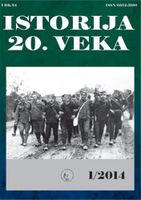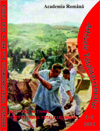
The Growth Of The Econimical Cooperation Between The Yugoslavia And The Soviet Union 1971-1980
Uspon ekonomske saradnje između Jugoslavije i SSSR 1971-1980
The economical relations between the Yugoslavia and Soviet Union during the 1970-ties, are the subject of this article. This decade was the period of the dynamical development of the economical cooperation between the two states. The economical relations rised after the exchange of the visits of the two presidents: Brezhnyev’s to Yugoslavia in 1971 and Tito’s to USSR in 1972 and 1973. Stability of the political relations was the pretext for such excellent and widespread economical cooperation, but both sides have the developed interest in strengthening the economical ties and relations. The mutual goods exchange reached high peak, while the important results came out from the industrial cooperation and building. Soviet Union became highest positioned economical partner for Yugoslavia in 1975. Comparing the 1971 and 1980 it was evident that the mutual good exchange, have over ten times growth.
More...

